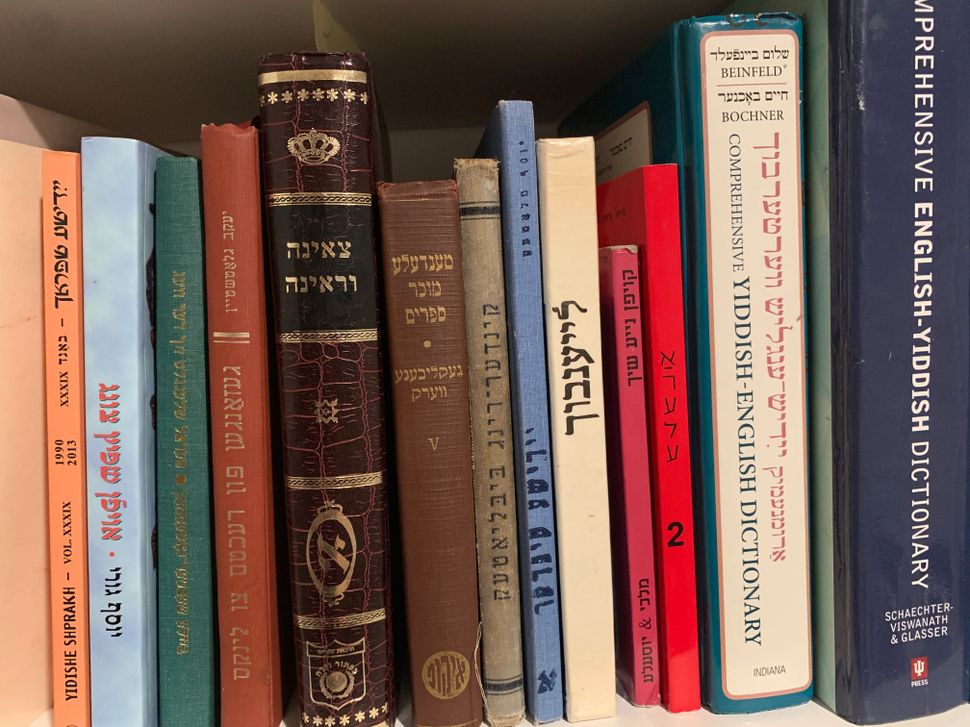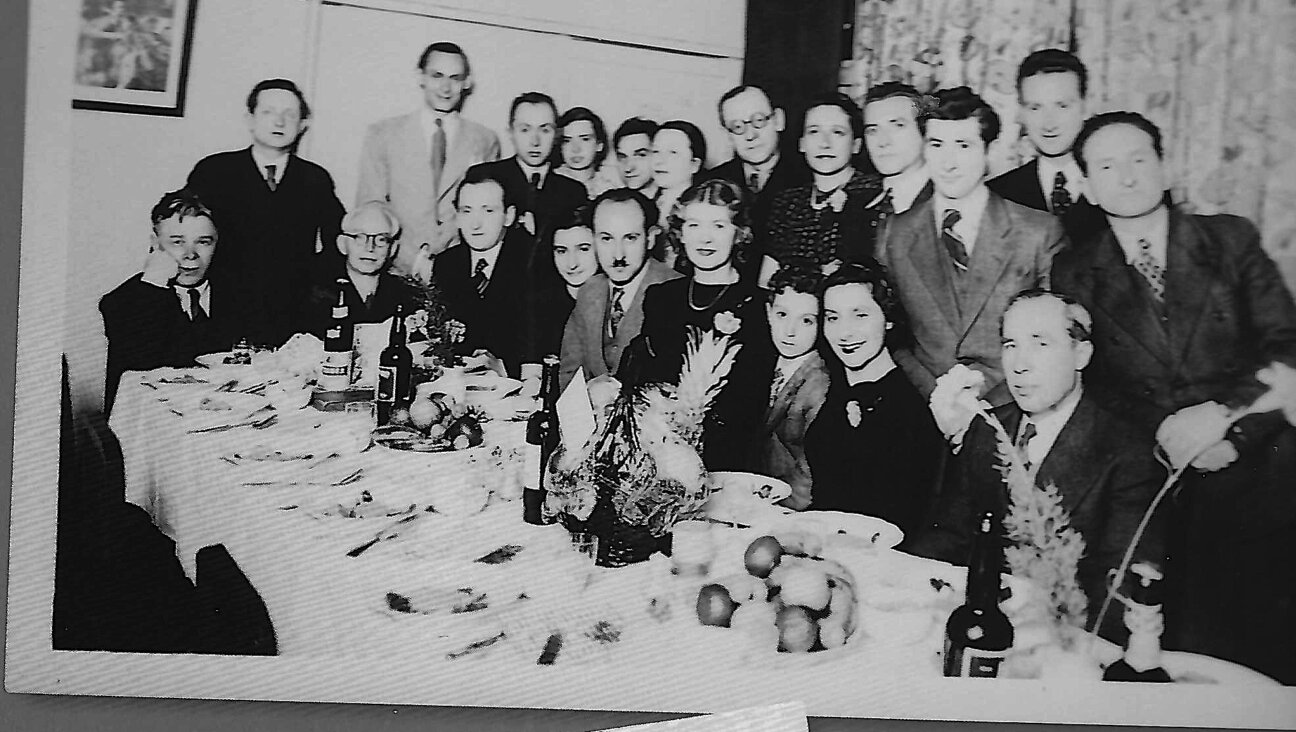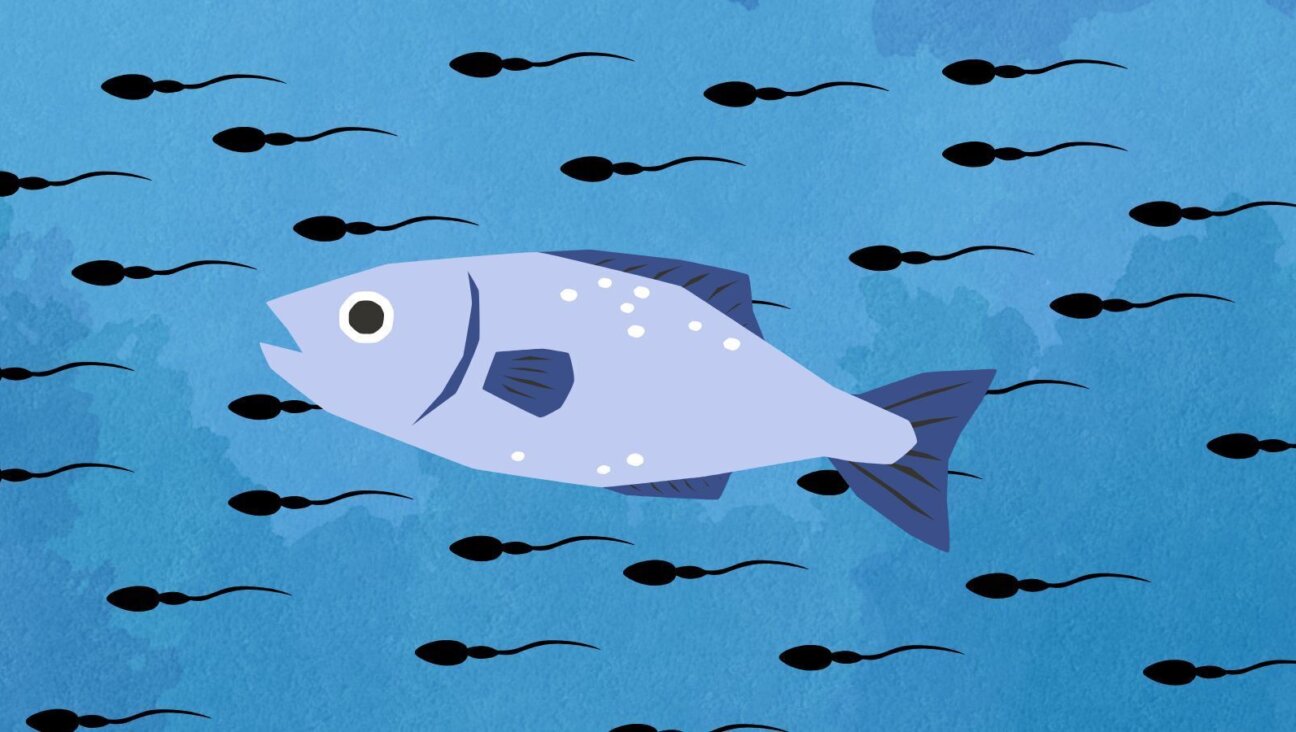The 20 best Yiddish words for discussing 2020

Click to hear this article read aloud.
The COVID-19 pandemic has brought us many challenges. But ironically, it’s also helped make 2020 a great year for learning Yiddish.
The annual YIVO Yiddish summer program had so many registrants this summer — 60% more than last year — that administrators had to scramble to schedule more classes and hire more teachers only days before the program began. Participants hailed from 14 countries and 23 states. The youngest was 16. The oldest, 84.
Year-round Yiddish classes at the Workers Circle drew around 1,000 students, from total beginners to fluent Yiddish speakers.
And the Forward’s new YouTube series “Yiddish Word of the Day,” hosted by yours truly, has gotten more than 350,000 views since its launch in April.
One reason for the surge in interest in Yiddish could be that many people stuck at home decided to take advantage of the opportunity to do something they’d wanted to do for years but never had the time for. For some, that activity was baking bread or taking long hikes with the family. For others, it was apparently learning the mame-loshn. And since the classes were online, they were available to people around the world, instead of just nearby residents.
Now that 2020 is coming to a close, it seems fitting to celebrate this trend by sharing 20 of our favorite Yiddish words from the year, either from “Yiddish Word of the Day” or that you might have picked up from a Yiddish speaker. Some are related to the coronavirus, and others are just plain fun to know.
Di mageyfe: Plague. Before 2020, the word mageyfe was most familiar to us from the Passover haggadah — remember the plague of the firstborn? — or the Bubonic Plague of the Middle Ages. Now, unfortunately, we have a mageyfe all our own.
Di maske: Mask. Before, this Yiddish word was used almost exclusively for Purim disguises. Now it’s taken on entirely new associations as in this sentence: “Kumt nisht arayn in gesheft on a maske!” (“Don’t you dare enter this store without a mask on!”)
Di pikuekh-nefesh arbeter: Essential workers, or, per the literal translation, “life-or-death workers.” Sounds more powerful in Yiddish, doesn’t it? The expression pikuekh nefesh is a Talmudic term referring to the principle in Jewish law that the preservation of human life overrides any other religious rule. Oh, and by the way, “emergency room” in Yiddish is der pikuakh-nefesh zal.
Ikh hob dikh lib: I love you — what you need to say to your spouse, partner and children every day to remind us all what’s really important.
Opgezundert: Socially distanced, as in: “When you’re shopping for groceries, make sure you’re opgezundert from the other customers.”
Oysgeleydikt: Emptied out, as supermarkets often were in the first couple of months of the pandemic. An example: “I went to Key Food and there were no paper goods at all. The shelves were oysgeleydikt.”
Oysgezoomt: A wonderful neologism that spread quickly on the internet, author unknown, meaning wiped out from Zooming all day — literally, “all Zoomed out.”
Sha!: Be quiet!, or what you yell out when you’re trying to work at home while your kids and other relatives (and cats and dogs) are stuck at home with you all day.
Der shpatsir: A stroll or hike, one of the few things we can safely do while outside the home during corona times.
Di lange gatkes: Long underwear or long johns — exactly what you need when you’re spending much more time outdoors than you ever did before, due to the pandemic. The word gatkes by itself means “boxer shorts.”
Ongeblozn: Sullen, sitting with a pout on one’s face, arms folded, or what a child looks like after she’s been told she can’t have ice cream before dinner.
Der khosn-bokher: Literally, this phrase means “unmarried groom.” It’s what the parents or other relatives of a single guy call him when they really mean to say: “you’re old enough to be married, so what on earth are you waiting for?”
Di kale-moyd: The same, but for a woman.
Zhaleven: To be stingy, to scrimp. As an old camp friend, Ellen Goldwasser, once said: “My mother always told me: ‘af shikh zolstu nisht zhaleven’ — when buying shoes, don’t be cheap; buy only the best.”
Di trepverter: Literally, this means “stairwords” — a succinct description of the common phenomenon of figuring out the perfect retort or argument to someone just as you walk out the door.
Der kokhlefl: Mixing spoon, also used for someone who butts into everyone else’s business, as in “Don’t be such a kokhlefl.”
Der grafoman: Someone who writes fiction compulsively, in the hope of being recognized as a writer, even though his writing is third-rate. The kind of person who, if he’s lucky enough to find a publisher, will eagerly hand out free copies to anyone who’ll take it.
Der tsadik in pelts: A hypocrite. The words translate literally to “a pious person in a fur coat.” Why this image? A truly righteous person would build a fire to warm everyone else in the area, while wearing a fur coat benefits only him.
Ketsele: Kitten; also what you call a child or sweetheart, as in: “kum aher, ketsele” (“come here, baby”).
Di makhetonim: Your child’s in-laws. English has no word to describe the relationship between two sets of parents-in-law, but in traditional homes, this relationship has always been essential. The reason: raising children is hard enough, and to give them a strong support net, both sets of parents need to be involved and communicating — not only with their children, but with each other.

























